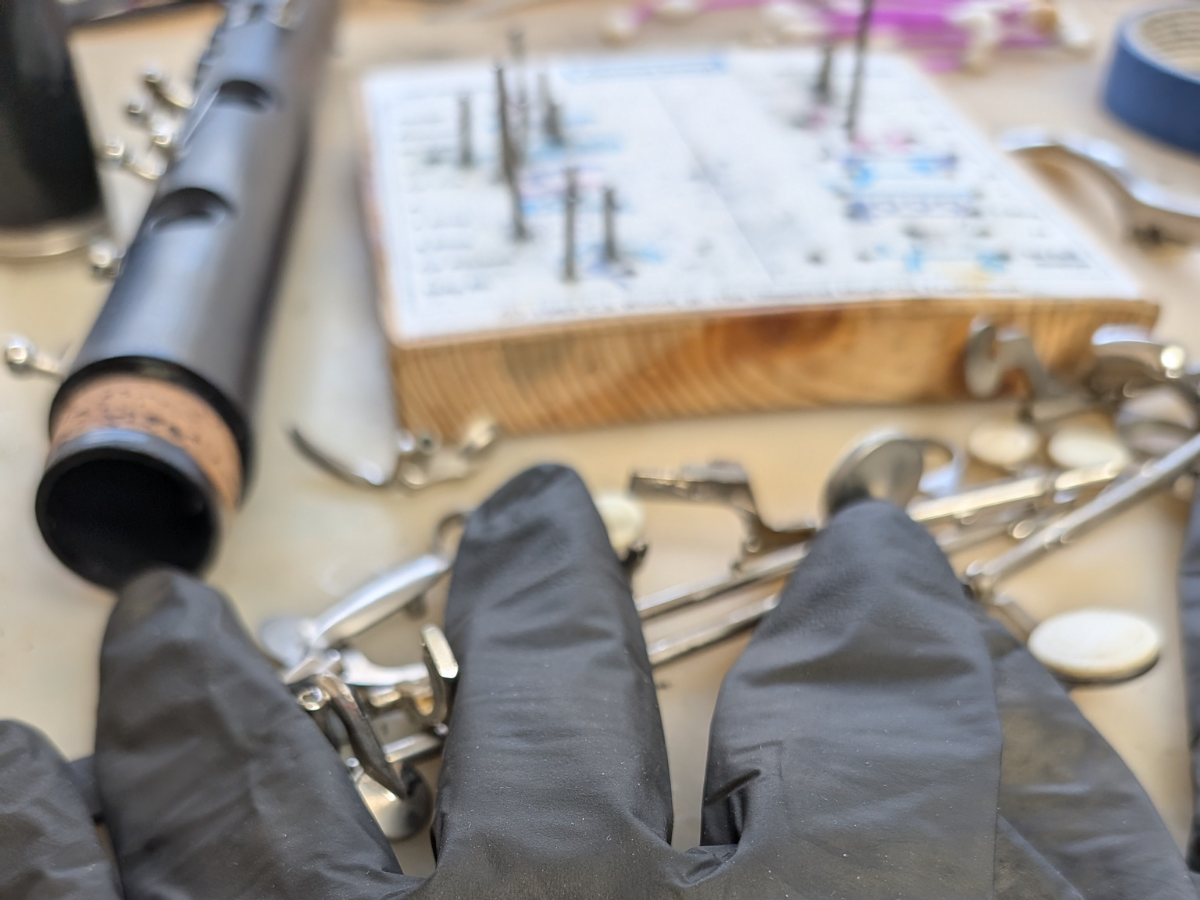
Musical instrument repair is a rewarding and specialized trade that blends craftsmanship with a passion for music. Whether you’re considering a career in this field or you’re a musician looking to expand your skill set, understanding the financial and professional opportunities is essential. Let’s explore the pay range, job availability, and career options available to trained musical instrument repair technicians.
How Much Do Musical Instrument Repair Technicians Make?
The salary for musical instrument repair technicians can vary based on factors like experience, location, and the type of employer. Here’s a breakdown of what you can expect:
Entry-Level Pay
Starting Salary: $28,000 to $35,000 per year
New technicians often begin their careers working for music stores, schools, or repair shops. At this stage, they typically assist more experienced technicians while gaining hands-on experience.
Experienced Technicians
Mid-Level Salary: $40,000 to $55,000 per year
After gaining a few years of experience, technicians can handle more complex repairs and may develop a specialization (e.g., woodwinds, brass, or string instruments). Technicians in this range often work independently, need less supervision, and supervise others.
Highly Skilled Technicians and Specialists
Advanced Salary: $60,000 to $80,000+ per year
Senior technicians, specialists, or those who own their own repair businesses can command higher salaries. Specialists who focus on high-end or rare instruments (e.g., professional-level violins or vintage brass instruments) may earn even more.
Freelancers and Business Owners
Potential Income: $75,000 to $100,000+ per year
Running a repair business can significantly increase earning potential, especially for those who serve a large customer base or contract with schools, orchestras, or music stores. However, business owners will spend time doing tasks other than repair work.
Factors Influencing Pay
Several factors affect how much a musical instrument repair technician can earn:
1. Location
Salaries tend to be higher in urban areas where demand for repairs is greater. Rural areas may have fewer customers but less competition, which can lead to steady income for skilled technicians.
2. Specialization
Technicians who specialize in high-demand areas, such as professional woodwind or brass instruments, may earn more. Those who work on orchestral strings or percussion instruments can also command higher rates due to the niche expertise required.
3. Experience and Certifications
Technical or brand certifications and years of experience can lead to higher pay and more job opportunities. Formal training programs, like those offered by CIOMIT, provide a competitive edge in the job market.
Job Availability for Musical Instrument Repair Technicians
The demand for musical instrument repair technicians remains steady due to the ongoing need for instrument maintenance and repair. Here’s where you’re likely to find opportunities:
1. Music Stores
Many music stores have in-house repair technicians to service customer instruments. This is a common entry point for new technicians.
2. Schools and Lesson Studios
Schools with music programs often employ repair technicians or contract with them for regular maintenance of band and orchestra instruments. Lesson studios typically offer services like repairs and rentals in addition to music lessons.
3. Repair Shops
Dedicated repair shops offer consistent work and may allow technicians to specialize in specific types of instruments.
4. Orchestras and Professional Musicians
Professional musicians and orchestras rely on skilled technicians to maintain their high-quality instruments. These jobs are highly specialized and often come with higher pay.
5. Self-Employment
Many technicians eventually start their own businesses, offering repair services directly to musicians, schools, and organizations. This option allows for greater flexibility and income potential.
Career Paths in Musical Instrument Repair
A career in musical instrument repair can take many forms, offering flexibility and opportunities for growth:
1. Repair Technician
The most common path, repair technicians work with instruments to restore and maintain their functionality. This role requires hands-on skills and attention to detail, making it ideal for those who enjoy problem-solving. Some technicians choose to specialize in a specific type of instrument (e.g., woodwinds, brass, or strings). Specialists are often sought after for their expertise and may earn higher wages.
2. Shop Owner or Freelancer
Owning a repair shop or freelancing allows technicians to set their own schedules and rates. This path requires business skills but can offer greater autonomy and income potential.
3. Educator
Experienced technicians may transition into teaching, helping to train the next generation of repair professionals. Programs like CIOMIT rely on skilled educators to share their knowledge.
4. Manufacturer Technician
Some technicians work directly for instrument manufacturers, helping to assemble or quality-check instruments before they are sold. This role provides insight into instrument production and design.
Why Choose Musical Instrument Repair?
Job Satisfaction:
There’s immense fulfillment in restoring an instrument to its full potential and helping musicians achieve their best sound.
Flexibility:
Repair technicians can work full-time, part-time, or seasonally, making it a great option for those with other commitments.
Stability:
Instruments will always need maintenance, creating a steady demand for skilled technicians.
Creativity and Problem-Solving:
Every repair is a unique challenge, offering variety and the chance to use your creativity.
Passion for Music:
For those who love music, this career provides the opportunity to combine a passion for the arts with a practical, hands-on trade.
Start Your Career in Musical Instrument Repair at CIOMIT
Colorado Institute of Musical Instrument Technology (CIOMIT) offers specialized training programs designed to prepare you for a challenging career in musical instrument repair. With flexible payment options, part-time in-person courses, and expert instruction, CIOMIT equips students with the skills they need to succeed in this increasingly in demand field.
Whether you dream of working with professional musicians, opening your own repair shop, or contributing to your local music community, a career in musical instrument repair offers tangible possibilities. Ready to get started? Contact CIOMIT today to learn more about our programs and how we can help you achieve your career goals or apply to be a student.